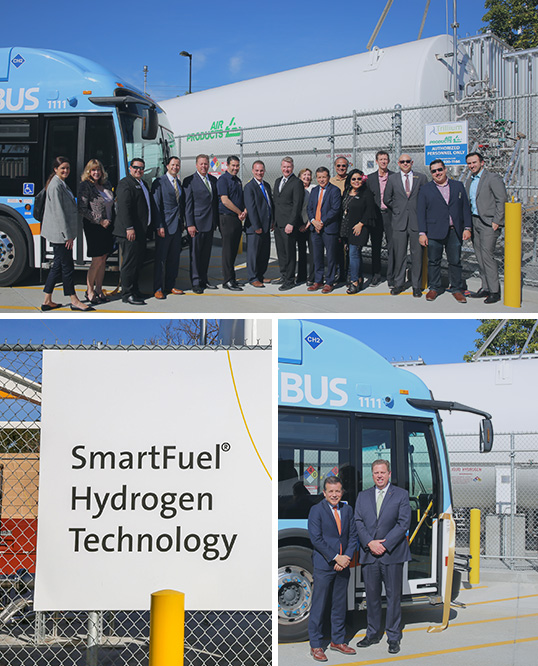Zero-Emission Bus Program
As part of its plan to convert the OC Bus fleet to 100 percent zero-emission technology by 2040, OCTA has invested in 10 plug-in battery-electric buses and an equal number of hydrogen fuel-cell electric buses. This pilot will help determine which technology - or mix of technologies - will help bring even cleaner air quality to Orange County.
Several plug-in electric buses have begun operating on routes throughout various parts of the county.
OCTA will receive $2.5 million in federal funding toward the purchase of 10 battery-electric buses that will replace 10 gasoline buses in the OC ACCESS program, which serves bus riders with physical or cognitive disabilities.
In addition, OCTA received the Transit and Mobility Award from the Advanced Clean Transportation (ACT) Expo, which celebrates transportation technology and clean fleets.
Staff will continue to analyze emerging technologies and work with partners to secure funding for purchase, operations and maintenance of the buses.
OCTA's Zero Emission Bus (ZEB) Program aligns with California's Innovative Clean Transit Rule, a first-of-its kind regulation in the U.S. that sets a goal for public transit agencies to gradually transition to 100 percent zero-emission bus fleets by 2040.
Learn more about OCTA's Hydrogen Fuel Cell Electric Bus
Learn more about OCTA's Battery-Electric Buses

Environmental Benefits

OCTA's commitment has resulted in:
- OCTA was the first large public transportation agency in Southern California to operate a hydrogen fuel-cell electric bus to help protect the environment.
- Buses powered by fossil fuel buses emit air pollutants that produce smog and greenhouse gases. Hydrogen fuel-cell electric buses emit only water, which means cleaner air, less global warming, and healthier, quieter neighborhoods.
- OCTA's hydrogen fueling station, the largest in the country, was funded in part by California Climate Investments, a statewide initiative that puts billions of cap-and-trade dollars to work reducing greenhouse gas emissions, strengthening the economy and improving public health and the environment - particularly in disadvantaged communities.